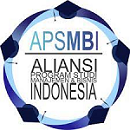Pengaruh Budaya Organisasi terhadap Komitmen Organisasional Afektif yang Dimediasi oleh Kepercayaan
Studi pada PT Trubaindo Coal Mining Kabupaten Kutai Barat
Abstract
Budaya organisasi merupakan salah satu aspek penting dalam membangun komitmen karyawan. Selain budaya organisasi, faktor lain yang dapat meningkatkan komitmen organisasional karyawan adalah kepercayaan. Penelitian ini bertujuan untuk menganalisis pengaruh budaya organisasi secara langsung terhadap komitmen organisasi serta pengaruhnya secara tidak langsung melalui varaibel mediator kepercayaan. Sampel penelitian adalah karyawan departemen laboratorium sebagai pusat kualitas data batubara. Analisis data menggunakan SEM-PLS. Hasil penelitian menunjukkan adanya pengaruh positif dan signifikan budaya organisasi dan kepercayaan terhadap komitmen organisasional afektif, lebih lanjut budaya organisasi berpengaruh positif dan signifikan terhadap komitmen organisasional afektif dimediasi oleh kepercayaan.
Kata kunci: Budaya Organisasi, Komitmen Organisasional Afektif, Kepercayaan
Organizational culture is one of the important aspects of building employee commitment. In addition to organizational culture, another factor that can increase employee organizational commitment is trust. This study aims to analyze the influence of organizational culture directly on organizational commitment and its influence indirectly through the trust as a mediation variable. The sample of this research are employees of the laboratory department as a center for coal data quality. Data analysis using SEM-PLS. The results showed a positive and significant influence of organizational culture and trust on affective organizational commitment, furthermore, the organizational culture had a positive and significant effect on affective organizational commitment mediated by trust.
Keywords: Organizational Culture, Affective Organizational Commitment, Trust
Downloads
Jurnal Bisnis dan Manajemen (JBM) allows readers to read, download, copy, distribute, print, search, or link to the full texts of its articles and allow readers to use them for any other lawful purpose. The journal allows the author(s) to hold the copyright without restrictions. Finally, the journal allows the author(s) to retain publishing rights without restrictions.
Authors are allowed to archive their submitted article in an open access repository, and the final published article in an open access repository with an acknowledgment of its initial publication in this journal









